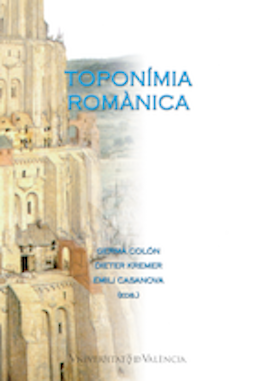¿DOC? La toponimia y la deonimia francesas, en la lengua y en el lenguaje, para el Hexágono y para los países limítrofes
DOI:
https://doi.org/10.7203/qfilologia.20.7524 Resum
Resum
Des de l'Edat Moderna, la pràctica traductològica no estima adequada ni la traducció ni la substitució –la naturalització o aculturació si es prefereix– dels noms propis, siguin aquests onomàstics o toponímics. Enfront de la traducció semàntica del nom ‘transparent’, enfront de la substitució cultural, s'imposa l'apropiació: l'adopció o l'adaptació. El present treball presenta un recorregut per la toponímia i la deonimia franceses en l'àmbit de la llengua i sobretot en el dels llenguatges d'especialitat, per veure en quina mesurada les llengües dels països limítrofs (l'anglès, espanyol, l'italià, l'alemany i el neerlandès) respecten aquest caràcter unívoc. També presenta una taxonomia pròpia per catalogar les diferents relacions traductològiques.
Paraules clau: onomàstica; terminologia; toponímia, deonímia; traducció.
 Descàrregues
Descàrregues
Descàrregues
Publicades
Com citar
-
Resum426
-
PDF (Español)731
Número
Secció
Llicència
 Este obra está bajo una licencia de Creative Commons Reconocimiento-NoComercial-SinObraDerivada 4.0 Internacional.
Este obra está bajo una licencia de Creative Commons Reconocimiento-NoComercial-SinObraDerivada 4.0 Internacional.
Tots els documents inclosos a OJS són d'accés lliure i propietat dels seus autors i/o institucions editores, i per tant, qualsevol acte de reproducció, comercialització, comunicació pública o transformació total o parcial necessita el consentiment exprés i escrit d'aquests.
Authors who publish with this journal agree to the following terms:
- Authors retain copyright and grant the journal right of first publication with the work simultaneously licensed under a Creative Commons Attribution License that allows others to share the work with an acknowledgement of the work's authorship and initial publication in this journal.
- Authors are able to enter into separate, additional contractual arrangements for the non-exclusive distribution of the journal's published version of the work (e.g., post it to an institutional repository or publish it in a book), with an acknowledgement of its initial publication in this journal.
- Authors are permitted and encouraged to post their work online (e.g., in institutional repositories or on their website) prior to and during the submission process, as it can lead to productive exchanges, as well as earlier and greater citation of published work (See The Effect of Open Access).




